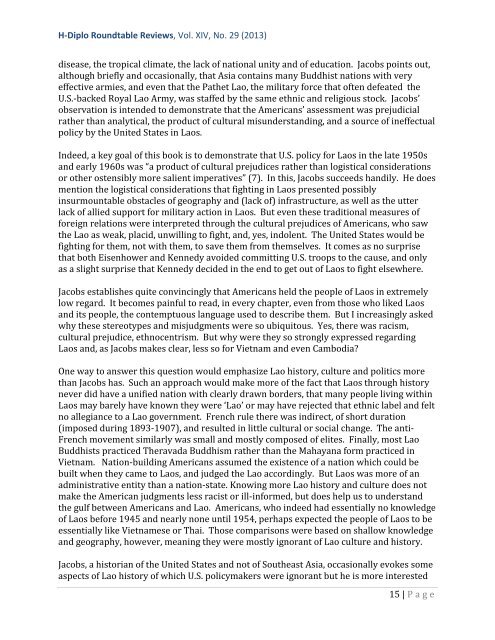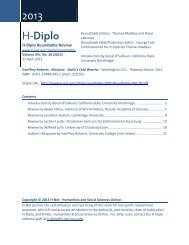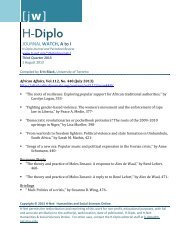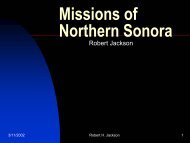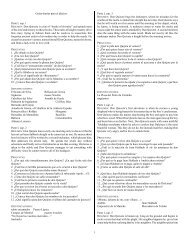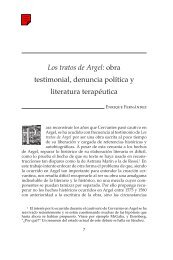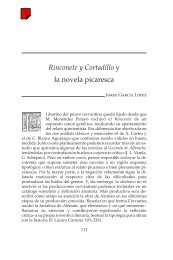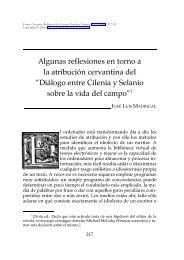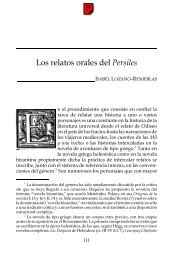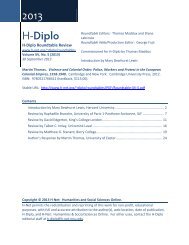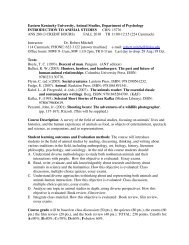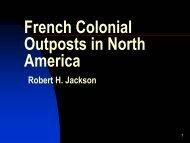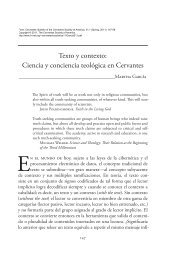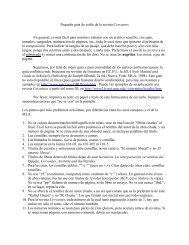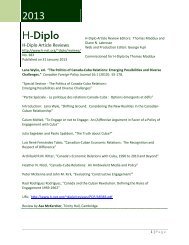H-Diplo Roundtables, Vol. XIV, No. 29 (2013) - H-Net
H-Diplo Roundtables, Vol. XIV, No. 29 (2013) - H-Net
H-Diplo Roundtables, Vol. XIV, No. 29 (2013) - H-Net
Create successful ePaper yourself
Turn your PDF publications into a flip-book with our unique Google optimized e-Paper software.
H-<strong>Diplo</strong> Roundtable Reviews, <strong>Vol</strong>. <strong>XIV</strong>, <strong>No</strong>. <strong>29</strong> (<strong>2013</strong>)<br />
disease, the tropical climate, the lack of national unity and of education. Jacobs points out,<br />
although briefly and occasionally, that Asia contains many Buddhist nations with very<br />
effective armies, and even that the Pathet Lao, the military force that often defeated the<br />
U.S.-backed Royal Lao Army, was staffed by the same ethnic and religious stock. Jacobs’<br />
observation is intended to demonstrate that the Americans’ assessment was prejudicial<br />
rather than analytical, the product of cultural misunderstanding, and a source of ineffectual<br />
policy by the United States in Laos.<br />
Indeed, a key goal of this book is to demonstrate that U.S. policy for Laos in the late 1950s<br />
and early 1960s was “a product of cultural prejudices rather than logistical considerations<br />
or other ostensibly more salient imperatives” (7). In this, Jacobs succeeds handily. He does<br />
mention the logistical considerations that fighting in Laos presented possibly<br />
insurmountable obstacles of geography and (lack of) infrastructure, as well as the utter<br />
lack of allied support for military action in Laos. But even these traditional measures of<br />
foreign relations were interpreted through the cultural prejudices of Americans, who saw<br />
the Lao as weak, placid, unwilling to fight, and, yes, indolent. The United States would be<br />
fighting for them, not with them, to save them from themselves. It comes as no surprise<br />
that both Eisenhower and Kennedy avoided committing U.S. troops to the cause, and only<br />
as a slight surprise that Kennedy decided in the end to get out of Laos to fight elsewhere.<br />
Jacobs establishes quite convincingly that Americans held the people of Laos in extremely<br />
low regard. It becomes painful to read, in every chapter, even from those who liked Laos<br />
and its people, the contemptuous language used to describe them. But I increasingly asked<br />
why these stereotypes and misjudgments were so ubiquitous. Yes, there was racism,<br />
cultural prejudice, ethnocentrism. But why were they so strongly expressed regarding<br />
Laos and, as Jacobs makes clear, less so for Vietnam and even Cambodia?<br />
One way to answer this question would emphasize Lao history, culture and politics more<br />
than Jacobs has. Such an approach would make more of the fact that Laos through history<br />
never did have a unified nation with clearly drawn borders, that many people living within<br />
Laos may barely have known they were ‘Lao’ or may have rejected that ethnic label and felt<br />
no allegiance to a Lao government. French rule there was indirect, of short duration<br />
(imposed during 1893-1907), and resulted in little cultural or social change. The anti-<br />
French movement similarly was small and mostly composed of elites. Finally, most Lao<br />
Buddhists practiced Theravada Buddhism rather than the Mahayana form practiced in<br />
Vietnam. Nation-building Americans assumed the existence of a nation which could be<br />
built when they came to Laos, and judged the Lao accordingly. But Laos was more of an<br />
administrative entity than a nation-state. Knowing more Lao history and culture does not<br />
make the American judgments less racist or ill-informed, but does help us to understand<br />
the gulf between Americans and Lao. Americans, who indeed had essentially no knowledge<br />
of Laos before 1945 and nearly none until 1954, perhaps expected the people of Laos to be<br />
essentially like Vietnamese or Thai. Those comparisons were based on shallow knowledge<br />
and geography, however, meaning they were mostly ignorant of Lao culture and history.<br />
Jacobs, a historian of the United States and not of Southeast Asia, occasionally evokes some<br />
aspects of Lao history of which U.S. policymakers were ignorant but he is more interested<br />
15 | P age


